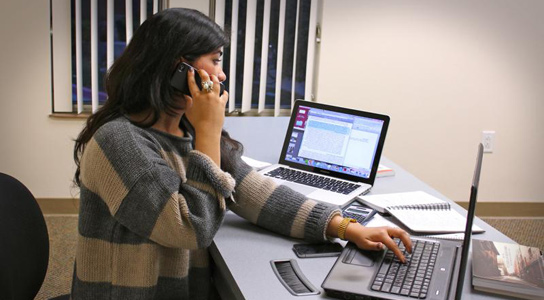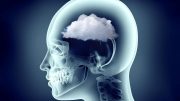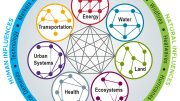
Researchers found evidence linking multitasking with various forms of media to symptoms of anxiety and depression. Credit: Christina Ortiz/RWW
In a new report published this week by Michigan State University’s psychology department, researchers found evidence that using multiple forms of media at the same time is linked to symptoms of anxiety and depression.
The study was conducted with data from two surveys of 319 undergraduate students, a group of people who engage in a lot of media multi-tasking. One survey measured the symptoms of anxiety and depression, and the other measured how the participants engaged in media multitasking. This allowed the researchers to discover if the subjects were low, medium, or high media multi-taskers. The survey measured indicators of depression and anxiety, but didn’t serve as a clinical diagnosis of the ailments.

Mark Becker. Credit: Photo by G.L. Kohuth
Participants with high levels of media multitasking were put into one group while those with lower levels in another. The lower group had a media score of 3.66 out of 9 on a depressive symptoms scale. The higher group had 6.19 out of 9. Those in the higher range also scored higher median numbers for indicators of social phobia symptoms.
This isn’t the first study that has linked multiple media usage and mental illness. Mark Becker, the lead investigator, states that they aren’t sure whether media multitasking is causing depression or if people are already experiencing the symptoms and use media as a form of distraction.
More research needs to be done, but Becker believes this information could help researchers understand how to minimize the negative impacts of increased media multitasking.









Be the first to comment on "Multiple Media Use Linked to Depression & Anxiety"